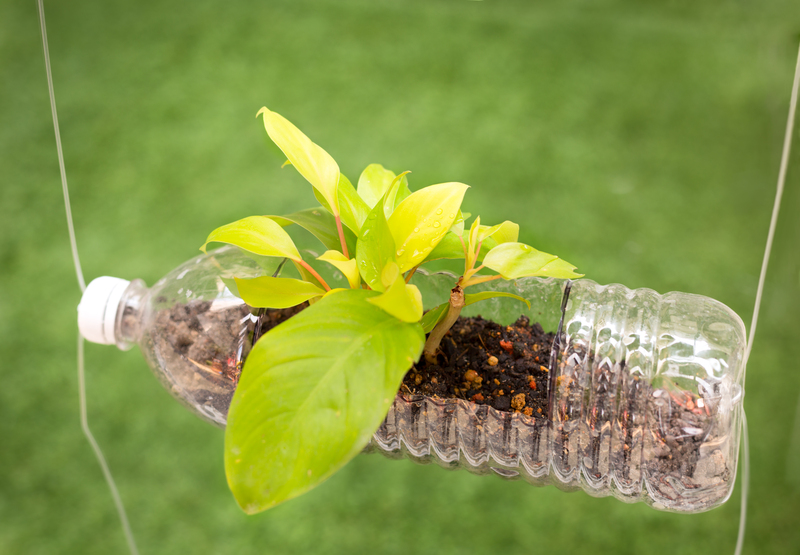Steps to Significantly Reduce Plastic Waste: A Comprehensive Guide
In today's world, plastic pollution has become one of the most pressing environmental issues. Reducing plastic waste is critical to preserving our planet's biodiversity and ensuring a cleaner, healthier future. This guide will provide practical steps to reduce plastic waste in your everyday life, empowering you to make impactful eco-friendly choices.

Understanding the Importance of Reducing Plastic Waste
Plastic, especially single-use plastic, is omnipresent in modern society. While convenient, most plastics are non-biodegradable, taking up to hundreds of years to decompose. The vast majority of plastic waste ends up in landfills, oceans, and landscapes, harming wildlife and contaminating food chains. By significantly reducing plastic waste, each of us can help minimize environmental damage and support a sustainable future.
Top Steps to Reduce Plastic Waste
1. Choose Reusable Over Disposable Products
One of the most effective ways to decrease plastic waste is by prioritizing reusable items over disposable ones. Products like water bottles, coffee cups, grocery bags, and lunch containers are often made of single-use plastics, contributing heavily to global waste.
- Use stainless steel, glass, or BPA-free reusable water bottles.
- Bring your own cloth shopping bags to grocery stores and markets.
- Switch to reusable food storage containers instead of plastic wrap and disposable bags.
- Say no to disposable straws; opt for metal, bamboo, or silicone alternatives.
2. Support Plastic-Free Packaging and Bulk Shopping
Supporting businesses that offer plastic-free packaging or buying in bulk can dramatically reduce plastic waste at the source. Many stores now offer options to refill your own containers or provide compostable alternatives.
- Choose products with minimal or recyclable packaging.
- Shop at zero waste or bulk food stores whenever possible.
- Bring your own jars, tins, or sacks to purchase dry goods, spices, and cleaning supplies.
3. Avoid Single-Use Plastics in Daily Life
From straws to cutlery, single-use plastics are designed for convenience, but their environmental cost is profound. Making small switches can yield significant reductions in plastic waste.
- Refuse plastic utensils and napkins when ordering take-out or delivery.
- Pack your own set of reusable cutlery for meals on the go.
- Use beeswax wraps or silicone lids instead of plastic films.
4. Rethink Personal Care and Cleaning Products
Many personal care items and cleaning supplies are packaged in plastic or contain microplastics. Transitioning to eco-friendly alternatives is a crucial step to cutting down plastic waste.
- Choose bar soap, shampoo bars, and solid conditioners over bottled liquids.
- Buy refillable cleaning products or make your own using vinegar and baking soda.
- Avoid products with microbeads or microplastics.
5. Embrace DIY and Upcycling
Upcycling means reusing materials instead of throwing them away. It's both creative and practical!
- Repurpose jars as storage containers, vases, or planters.
- Craft reusable gift wrap from fabric scraps.
- DIY cleaning rags from old T-shirts instead of buying synthetic cloths.
6. Recycle Properly and Responsibly
While recycling alone cannot solve the plastic problem, doing it correctly is essential to minimize plastic waste going to landfills. Educate yourself about local recycling rules, as these can vary dramatically.
- Clean and sort recyclables before placing them in recycling bins.
- Separate different types of plastics as required by your local facility.
- Never wish-cycle (i.e., toss non-recyclables hoping they'll be recycled); this contaminates the recycling stream.
7. Get Involved in Community Initiatives
Communities around the globe are working hard to reduce plastic waste. By joining cleanup events or advocating for plastic bans, you can help multiply the impact.
- Participate in local beach or river cleanups.
- Support policies that ban or tax single-use plastics.
- Educate others about the importance of minimizing plastic waste.
8. Prefer Plastic-Free Alternatives for Clothing
Synthetic fabrics such as polyester, nylon, and acrylic are essentially plastics, and their microfibers frequently make their way into oceans. One way to significantly reduce plastic pollution is by choosing natural fibers.
- Buy clothing made from organic cotton, linen, hemp, or wool.
- Use laundry bags (e.g., Guppyfriend) that capture microfibers during washes.
- Support brands with sustainable, eco-friendly practices.
Reducing Plastic Waste at Work and School
Plastic consumption doesn't end at home. Many workplaces and educational institutions generate vast amounts of unnecessary plastic waste. Here's how you can help change this.
Initiate Plastic Reduction Programs
- Encourage your office or school cafeteria to switch to compostable utensils and containers.
- Advocate for water refill stations to reduce bottled water use.
- Host educational workshops to spread awareness on cutting down plastic waste.
Pack Plastic-Free Lunches
- Use stainless steel tiffins, silicone pouch bags, and beeswax wraps.
- Buy snacks in bulk and portion them out at home to avoid single-use packaging.
Advanced Strategies to Achieve Zero Plastic Waste
For those ready to take it to the next level, advanced zero-waste principles can help you drastically cut your plastic impact.
- Compost food scraps and organic waste to reduce trash bags (often made of plastic).
- Repair, swap, or donate items rather than discarding them.
- Support farmers' markets for produce with no packaging.
- Join zero-waste community groups for ideas, swaps, and resources.

The Ripple Effect: Why Your Choices Matter
Many people underestimate the difference one individual can make. But reducing your plastic waste influences friends, families, and businesses, creating a ripple of positive change in society. As demand shifts, industries are motivated to innovate and provide more sustainable solutions, ultimately benefiting the environment.
Conclusion: Your Role in Minimizing Plastic Waste
By embracing thoughtful, sustainable habits and making mindful purchases, you play an essential part in the global movement to cut plastic waste. Whether you're buying food, upgrading your wardrobe, or simply enjoying a cup of coffee on the go, every decision can contribute to a plastic waste-free world.
To recap, the steps to significantly reduce plastic waste include choosing reusables, avoiding single-use plastics, supporting eco-friendly packaging, recycling properly, participating in community initiatives, and spreading awareness. Together, these actions create a powerful impact--one that ensures cleaner oceans, healthier wildlife, and a safer planet for generations to come.
Start your journey today. Every plastic-free choice counts!